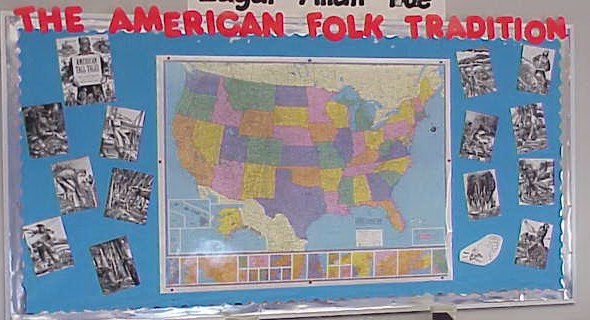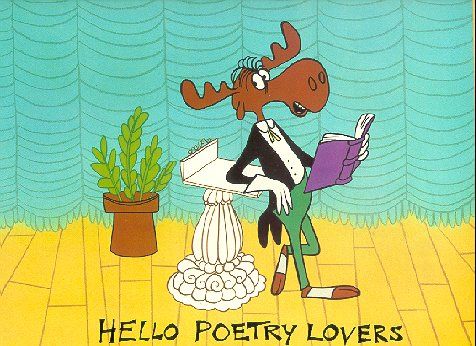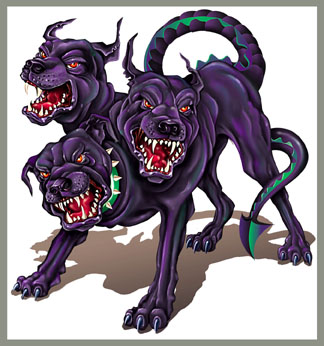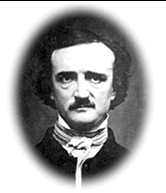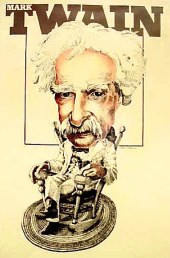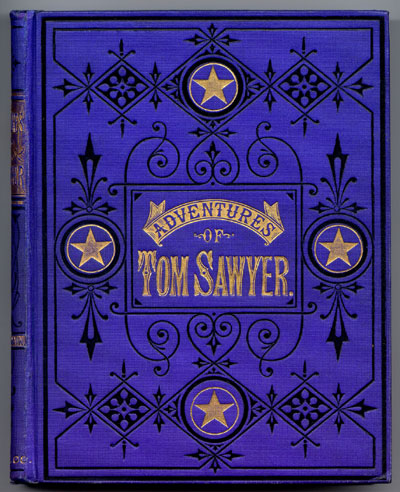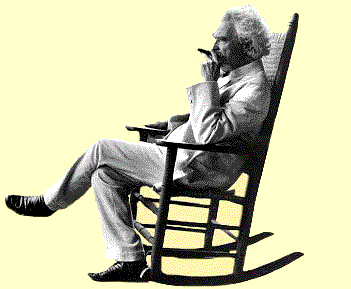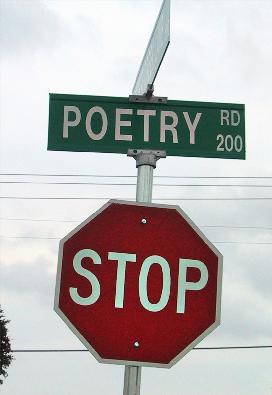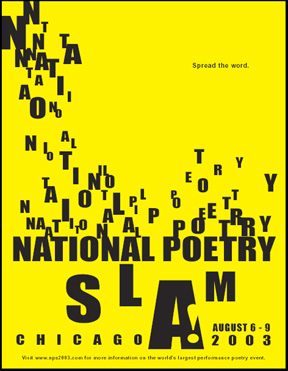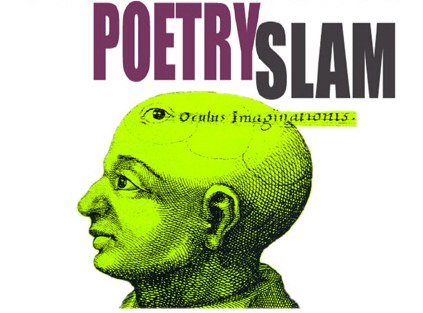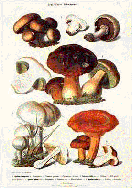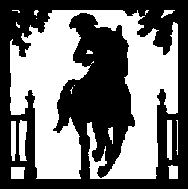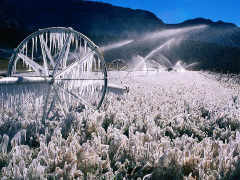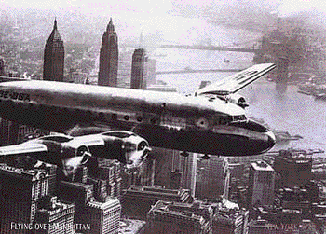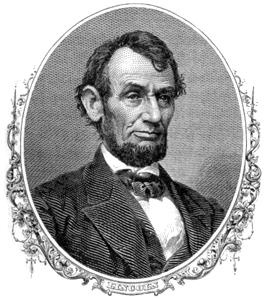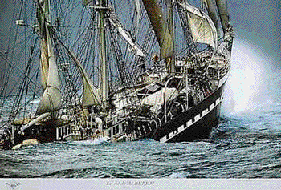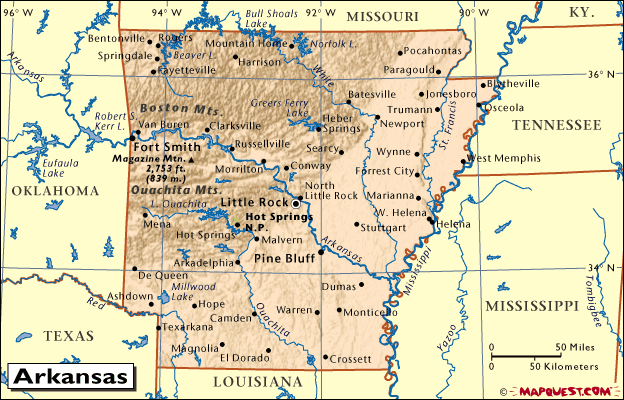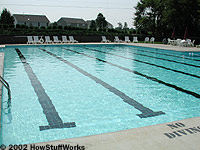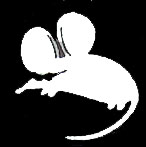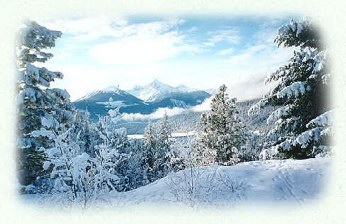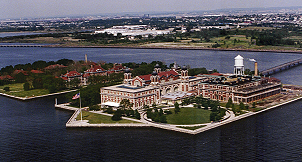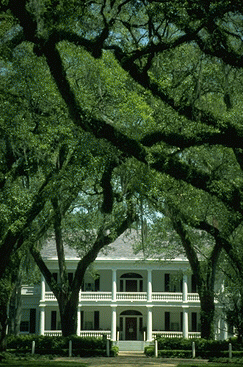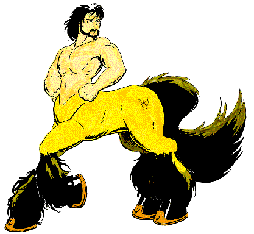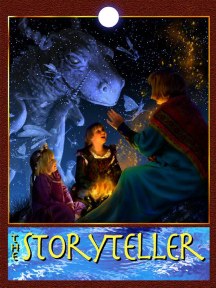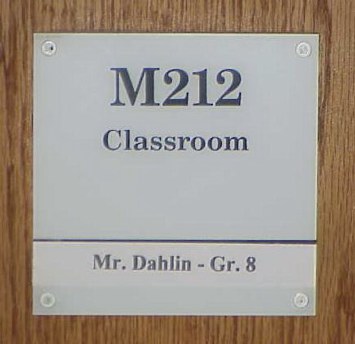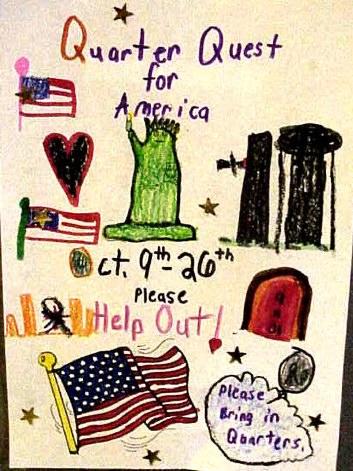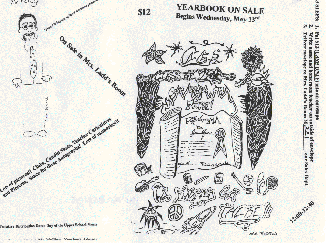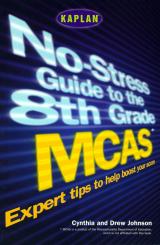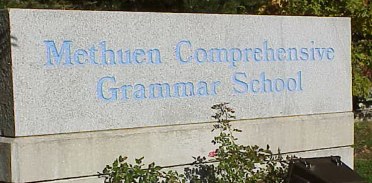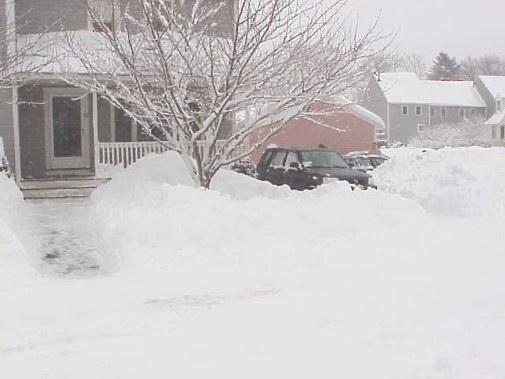Holding Tank
The Father of the American Short Story
Mark Twain Links:
Visit One of these sites and prove it by printing something out and I'll give you bonus points!
Tom Sawyer Project/Essay Choices Posted (both due Jan. 5th)
Go to Current Unit Info and
GET IT DONE!
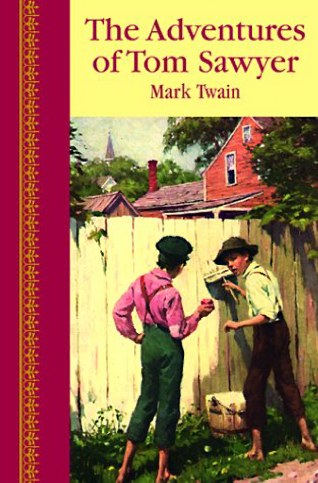
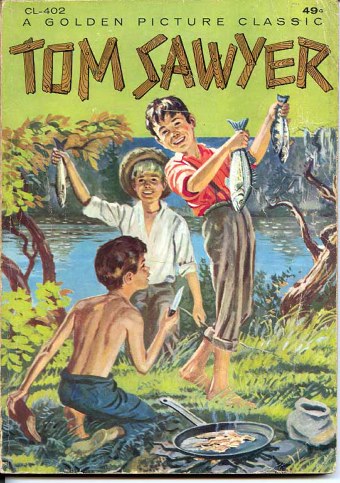
AEverything You Need for Tom Sawyer is Online!
Go to Current Unit Info to check it out!
One click on the picture of Mark Twain will get you there!
 VS.
VS. 
Girls Win
by .4295 points!!!
Quiz/Test
|
Girls
|
Boys
|
Life of Mark Twain
|
83.355
|
80.763
|
Chapters 1-4
|
78.008
|
78.995
|
Chapters 5-10
|
65.053
|
72.918
|
Chapters 11-15
|
63.698
|
66.330
|
Chapters 16-20
|
93.765
|
92.190
|
Chapters 21-26
|
80.045
|
80.590
|
Chapters 27-30
|
91.640
|
82.273
|
Chapters 31-35
|
88.525
|
91.795
|
Chapters 1-10
|
84.945
|
84.420
|
Chapters 11-20
|
83.190
|
82.170
|
Chapters 21-30
|
87.245
|
85.288
|
Vocabulary Final
|
78.755
|
74.003
|
Novel Final
|
78.233
|
81.088
|
TOTAL
|
81.4924
|
81.0628
|
Girls Win Tom Jeopardy 113-76
Boys blame everyone!
All Tom Sawyer Projects & Essays Are Way Past Due!
The Adventures of Tom Sawyer Project Choices
Storyboard - Draw an 8 paneled storyboard depicting scenes from The Adventures of Tom Sawyer. Each panel should depict a major event from the novel. Please choose what you consider to be the 8 most important events from the novel for your illustrations. Each panel should be drawn in color and contain a brief description of the event pictured.
ABC Book - Create a book containing 26 words (one for each letter of the alphabet). All words must have something to do with The Adventures of Tom Sawyer. Put one word on each page along with the definition (or description) of the word and an illustration of that word. Please see me with your word list BEFORE you begin drawing. This book must be done in color.
Game - Create a board game or trivia game dealing with The Adventures of Tom Sawyer. Make sure the most important events (the whitewashing, the murder, Jackson's Island, the funeral, and the cave) are well represented.
Movie Poster - design the poster for the movie version of the novel. Include appropriate casting choices. This should be large and colorful. Please consult the entertainment section of the newspaper to help you. Also see me if you want to do this project. I have a suggestion or two!
Diary - Write ten (10) diary entries for one of the characters in the book. Each diary entry must consist of at least five (5) sentences. Make sure all entries are consistent with the characters and the events in the story.
Obituaries - Write obituaries for Tom, Joe, and Huck (that's a total of three), following their tragic “deaths” in the river. Be sure to include the feelings of the town about the boys once they have “died”. Consult the obituary page of the newspaper to help you with these.
Create a Project - You make up your own project. Just make sure you clear it with me first!! Failure to do so will result in your failure.
All Projects were due
Friday, January 7th, 2005

The Adventures of Tom Sawyer Essay Choices
Please answer one of the following questions in a well-written 1-2 page essay. Each essay should contain at least 4 or 5 well-constructed paragraphs. Each paragraph should consist of a topic sentence, three or four “body sentences” and a concluding sentence. Don't forget that the first paragraph should be an introductory paragraph that mentions the title of the book and the author. The next two to three paragraphs should answer the question and the last paragraph should be a concluding paragraph that wraps it all up. See me if you would like a “paragraph by paragraph outline” for your specific question.
1) Compare Tom Sawyer at the beginning of the novel and in the last chapter. How does his character change during the course of the novel?
2) Analyze the relationship between Tom and Huck Finn. Make sure you include details about their trip to the graveyard, their time on Jackson's Island, and their hunt for treasure. How does Tom influence Huck? How does Huck influence Tom?
3) Analyze Tom's relationship to the other boys his age, especially in the whitewashing scene and at school.
4) Trace the courtship of Tom and Becky. In what ways is their romance adult like? In what ways is it childish? Be sure to include their first encounter, the sequences at school, and their time together in the cave.
5) Analyze the character of Injun Joe and the nature of his villainy. Does the author want the reader to feel sympathy for Injun Joe? Why or why not? Be sure to include details about the events at the graveyard, the courtroom proceedings and Joe's ultimate fate.
6) Analyze the relationship between the adult community and St. Petersburg's children. Include details about the search for the “drowned” boys, the boys' “funeral” and the search for Tom and Becky.
All Essays were due
Friday, January 7th, 2005

Nonfiction Info. is Here!!!
Learning Objectives, Guidelines & Rubrics for Biographies and Posters, Notes, Vocabulary List, and "The List" are Now Available!
Newly Added:
Worksheets for "Harriet Tubman: Guide to Freedom", "Hokusai: The Old Man Mad About Drawing",
"Not to Go With the Others",
"I Know Why the Caged Bird Sings",
"Cub Pilot on the Mississippi",
"Roberto Clemente: A Bittersweet Memoir"
"The American Dream"
"The Trouble With Television"
"Dial vs. Digital"
"The Indian All Around Us"
"Forest Fire"
"Animal Craftsmen"
"Debbie"
and
"My Wild Irish Mother"
Learning Objectives for Non-Fiction
1. Understand the three purposes for reading non-fiction:
read for the love of literature
read for information
read to be entertained
2. Understand and employ the strategies for reading non-fiction:
identify the author's purpose
identify the author's main points
evaluate logic used to make points
evaluate the author's presentation
3. Identify and understand the differences between the following types of
non-fiction: biography, autobiography, memoir, essay.
4. Identify and understand the differences between the following types of essays: reflective, humorous, narrative, descriptive, expository & persuasive.
5. Define the 25 words on our vocabulary list and be able to use them in an original sentence.
6. Research and prepare a biography about an influential person featured on our list.
7. Learn and employ the proper way to present a bibliography in a research report.
8. Create a Biography Poster featuring the person you chose to do your biography about.
Non-Fiction Unit - Biography Paper
Project - Due Thursday, January 20th, 2005
On the back of this page, you will find a list of 135 people. These people are from various countries all around the world. They lived in different eras. Yet they have one thing in common; they are all considered to be influential. They are all men and women who shaped the millennium. Each has made an impact on our world.
You may notice that you won't find Brittney Spears, Eminem, Paris Hilton, Ashton Kutcher, Kobe Bryant, Barry Bonds, or anyone even remotely related to reality TV. There is a good reason for this…they DON'T MATTER! The people on this list have accomplished things that have spanned hundreds of years. They have impacted the world we live in today.
Here is your assignment; you are to choose one (1) of the people listed on the back of this page and prepare a report on them. You will write a 1-2 page paper on the person you choose. This paper should include the following information: where and when they were born, their accomplishments and other interesting facts about their lives. Please include a picture or drawing of your person. Make it look good!
As I've said many times before, I could get a chimp to go on the Internet and print something out. I want you to write your own paper! If you use other sources for this project (and I want you to use at least two) I want them to be listed in a bibliography that you'll attach at the end of your paper. I'll show you how to do this next week. There is nothing wrong with taking a sentence or two directly from a source and using it in your paper. If you do this, you must indicate it! I've already failed dozens and dozens of "research papers" over the years for handing in something they didn't write.
Make the words and information your own. Include what you personally think about the person based on the research you've done. Don't make me fail you for stealing!
Each of you will choose a different person for this assignment. That's why I've given you 135 choices. No two people will do the same report. You only have about two weeks to do this whole thing so don't waste time.
I will start taking "reservations" tomorrow morning. First come first served.
If you need any help with this project in any way, please let me know as soon as possible. All projects are due Thursday, January 20th, 2005.
Abigail Adams
|
Albert Einstein
|
J. Robert Oppenheimer
|
John Adams
|
Dwight D. Eisenhower
|
Thomas Paine
|
Louisa May Alcott
|
Leif Ericksson
|
Rosa Parks
|
Muhammad Ali
|
Henry Ford
|
Pablo Picasso
|
Susan B. Anthony
|
Anne Frank
|
Plato
|
Aristotle
|
Benjamin Franklin
|
Edgar Allan Poe
|
Louis Armstrong
|
Galileo Galilei
|
Jackson Pollock
|
Neil Armstrong
|
Mohandas K. Gandhi
|
Marco Polo
|
Crispus Attucks
|
Lou Gehrig
|
Ronald Reagan
|
Jane Austen
|
Theodore Seuss Geisel
|
Pierre-Auguste Renoir
|
Johann Sebastian Bach
|
George Gershwin
|
Paul Revere
|
Phineas T. Barnum
|
John Glenn
|
Jackie Robinson
|
Clara Barton
|
Mikhail Gorbachev
|
Eleanor Roosevelt
|
Ludwig van Beethoven
|
Ulysses S. Grant
|
Franklin Delano Roosevelt
|
Alexander Graham Bell
|
Nathan Hale
|
Theodore Roosevelt
|
Stephen Biko
|
Alexander Hamilton
|
Sacajawea
|
Blackbeard
|
Ernest Hemingway
|
William Shakespeare
|
Napoleon Bonaparte
|
Alfred Hitchcock
|
William Tecumseh Sherman
|
Louis Braille
|
Henry Hudson
|
Igor Sikorsky
|
John Brown
|
Langston Hughes
|
Elizabeth Cady Stanton
|
Martin Van Buren
|
Washington Irving
|
John Steinbeck
|
Aaron Burr
|
Thomas Jefferson
|
Pyotr Ilich Tchaikovsky
|
Julius Caesar
|
Joan of Arc
|
Mother Teresa
|
Lewis Carroll
|
Helen Keller
|
Henry David Thoreau
|
George Washington Carver
|
John F. Kennedy
|
Jim Thorpe
|
Fidel Castro
|
Robert F. Kennedy
|
Harry S. Truman
|
Paul Cezanne
|
Genghis Khan
|
Sojourner Truth
|
Frederic Chopin
|
Martin Luther King Jr.
|
Mao Tse-tung
|
Agatha Christie
|
Robert E. Lee
|
Harriet Tubman
|
Winston Churchill
|
Meriwether Lewis
|
Mark Twain
|
Confucious
|
Abraham Lincoln
|
Vincent van Gogh
|
James Fenimore Cooper
|
Charles Lindbergh
|
Rembrandt van Rijn
|
Nicholas Copernicus
|
Jack London
|
Jules Verne
|
Jacques Cousteau
|
Henry Wadsworth Longfellow
|
Amerigo Vespucci
|
Marie Curie
|
Douglas MacArthur
|
Andy Warhol
|
Salvador Dali
|
James Madison
|
Booker T. Washington
|
Charles Darwin
|
Ferdinand Magellan
|
George Washington
|
Leonardo da Vinci
|
Nelson Mandela
|
Walt Whitman
|
Charles de Gaulle
|
Guglielmo Marconi
|
Eli Whitney
|
Charles Dickens
|
Karl Marx
|
Elie Wiesel
|
Emily Dickinson
|
Michelangelo
|
Simon Wiesenthal
|
Walt Disney
|
Claude Monet
|
Woodrow Wilson
|
Frederick Douglass
|
J.P. Morgan
|
The Wright Brothers
|
Amelia Earhart
|
Isaac Newton
|
Malcom X
|
Thomas Edison
|
Georgia O'Keeffe
|
“Babe” Didrickson Zaharias
|
Biography Rubric
Topic/Idea Development:
5 pts. = Main idea is clearly stated. Topic sentences in most paragraphs. All details support
the topic. Paragraphs are well-ordered. Language is descriptive. Most sentences
are interesting. Good understanding of assignment.
3 pts. = Main idea is implied. Topic sentences in some paragraphs. Some details support
the topic. Paragraphs are in pretty good order. Language is somewhat descriptive.
Some sentences are interesting. Fair understanding of assignment.
1 pt. = Main idea is not clear. Topic sentences in a few paragraphs. Few details to support
the topic. Paragraphs are not carefully ordered. Language is simplistic. Sentences
do not change. Poor understanding of assignment.
Grammar/Mechanics:
5 pts. = Good use of capitalization. Good use of punctuation. Good spelling. Good sentence structure. Consistent tense. Subjects and verbs agree. Correct format.
3 pts. = A few capitalization, punctuation and spelling errors. Some errors regarding sentence structure, tense, and/or subject/verb agreement.
1 pt. = Capitalization problems. Punctuation problems. Spelling needs work. Sentence fragments/run-on sentences. Tense problems. Subjects and verbs do not agree. Incomplete/incorrect format.
Bibliography:
5 pts. = Bibliography correctly completed according to the guidelines provided.
2 pts. = Bibliography not completed correctly according to the guidelines provided.
0 pts. = Bibliography not included.
Originality:
5 pts. = Biography is consistent with student writing. Personal observations included.
3 pts. = Biography is inconsistent with student writing. Some personal observations included.
1 pt. = Research paper is very inconsistent with student writing. No personal observations included.
Grade = Total Points : _________________ X 5 = _______________________
Name ________________________________
Biography Poster Rubric
Accuracy of Information
5 pts = Ten accurate facts, figures, accomplishments of the subject are included.
3 pts. = Fewer than ten accurate facts, accomplishments of the subject are included.
1 pt. = Facts not included/facts are inaccurate.
Overall Appearance
5 pts = Poster is colorful, eye-catching, and easy to read.
3 pts. = Poster is somewhat colorful, eye-catching, and somewhat easy to read.
1 pt. = Poster is not colorful, not eye-catching, and/or difficult to read.
Photographs
5 pts = Poster includes appropriate visuals and includes enough photographs.
3 pts. = Poster does not include enough appropriate visuals/photographs.
1 pt. = No visuals/photographs included.
Poster Size/Effort
5 pts = Poster is the size I asked for and a valiant effort was made.
3 pts. = Poster is the right size but more effort could have been exerted.
1 pt. = The poster is too small and/or more effort could have been exerted.
Grade = Total Points X 5
Total Points _________________ X5 = Your Grade __________________
Name ____________________________________
Non-Fiction Notes
Let's start with some definitions…
*non-fiction - literature that deals with actual people, places, events, and topics based on real life
*biography -an account of a person's life as written by another person
*autobiography - a person's own account of his or her life
*memoir - a biographical piece usually written by a relative or personal friend of the subject
*anecdote-brief, amusing incidents or stories that make a simple point
*essay - a short non-fiction composition exploring a topic
TYPES OF ESSAYS
*narrative essay - an essay that explores a topic by telling a true story
*humorous essay - a short nonfiction composition in which a writer presents a subject in a humorous way
*descriptive essay - a short non-fiction composition exploring a topic
*expository essay - a short nonfiction piece that explains or gives information about a topic
*persuasive essay - a short nonfiction composition in which a writer presents his or her views in order to convince you to accept their opinion or to act in a certain way
Exploring the Genre
Whatever you want to know, there is a nonfiction book to provide the information. Just look at the selections I have with me today.
Nonfiction expands our minds with in-depth information, compelling us to ask more and more questions about how things work and why.
The subject matter of nonfiction is reality - the reality of people, events, places, and scientific exploration. Whether you want to learn about someone's life, a historical event, a travel destination, or the origin of our species, you can turn to nonfiction.
Purposes for reading Nonfiction
Whenever you read nonfiction, you have a purpose, or reason. Your purpose will vary, depending on what type of information and enjoyment you expect to get out of the reading. There are three purposes you might set before reading nonfiction pieces.
Read for the love of literature (like Mr. D.)
Read for information
Read to be entertained
Strategies for reading Nonfiction
Identify the author's purpose - nonfiction authors have a reason, or purpose for writing. The details and information they present support this purpose. Try to recognize how the author's purpose influences the information they choose to include in their piece.
Identify the author's main points - Ask yourself what the author wants you to learn or think as a result of reading the nonfiction piece.
Evaluate logic used to make points - In order for a nonfiction piece to be persuasive, its arguments have to be logical. Make sure that the author uses arguments that support their main points and do not conflict with one another. Check if the author overstates his or her arguments by leaving out evidence that might contradict his or her main points.
Evaluate the author's presentation - Pay attention to organization - look at the way the information is arranged.
Look for support - an author should support his or her main points with facts. If an author makes broad statements but does not back them up, note this in your evaluation.
Interest level is very important. Just because a nonfiction piece presents facts doesn't mean it has to be flat or boring. An author should still use provocative language, anecdotes, and information to hold your interest.
Non-Fiction Unit - Vocabulary List
word
|
p.o.s.
|
definition
|
story
|
Page #
|
|
1.
|
taut
|
"I Know Why the Caged Bird Sings"
|
31
|
||
2.
|
furtive
|
"Cub Pilot on the Mississippi"
|
99
|
||
3.
|
cajoling
|
"Harriet Tubman: Guide to Freedom"
|
129
|
||
4.
|
subtle
|
"Animal Craftsmen"
|
613
|
||
5.
|
empathy
|
"Animal Craftsmen"
|
613
|
||
6.
|
ensued
|
"Hokusai: The Old Man Mad About Drawing"
|
635
|
||
7.
|
immersed
|
"Hokusai: The Old Man Mad About Drawing"
|
635
|
||
8.
|
tenacious
|
"Forest Fire"
|
647
|
||
9.
|
posthaste
|
"Debbie"
|
653
|
||
10.
|
pervading
|
"The Trouble With Television"
|
667
|
||
11.
|
medium
|
"The Trouble With Television"
|
669
|
||
12.
|
devoid
|
"The American Dream"
|
674
|
||
13.
|
conjectured
|
"Roberto Clemente: A Bittersweet Memoir"
|
392 old
|
||
14.
|
arbitrary
|
"Dial vs. Digital"
|
476 old
|
||
15.
|
versatile
|
"The Indian All Around Us"
|
456 old
|
word
|
p.o.s.
|
definition
|
|
16.
|
anecdote
|
||
17.
|
memoir
|
||
18.
|
essay
|
||
19.
|
autobiography
|
||
20.
|
biography
|
||
21.
|
narrative essay
|
||
22.
|
humorous essay
|
||
23.
|
descriptive essay
|
||
24.
|
expository essay
|
||
25.
|
persuasive essay
|
Download Your Own:
15 Original sentences Rubric
name_______________________
sentence
|
incorrect usage
of word
|
incorrect form or tense of word
|
correct usage, form & tense
|
Excellent sentence bonus
|
1
|
||||
2
|
||||
3
|
||||
4
|
||||
5
|
||||
6
|
||||
7
|
||||
8
|
||||
9
|
||||
10
|
||||
11
|
||||
12
|
||||
13
|
||||
14
|
||||
15
|
||||
total
|
grade_______
Download Your Own:
Worksheet for "Harriet Tubman: Guide to Freedom"
Download Your Own:
Worksheet for "Hokusai: The Old Man Mad About Drawing"
Download Your Own:
Worksheet for "Not to Go With the Others"
Download Your Own:
Worksheet for "I Know Why the Caged Bird Sings"
Download Your Own:
Worksheet for "Cub Pilot on the Mississippi"
Download Your Own:
Worksheet for "Roberto Clemente: A Bittersweet Memoir"
Download Your Own:
Worksheet for "The American Dream"
Download Your Own:
Worksheet for "The Trouble With Television"
Download Your Own:
The other worksheets aren't here because the f-ing website wouldn't copy a simple document from one page to the other! Please have the patience to add the worksheets for the last few stories next time.
This site eats gnomes.
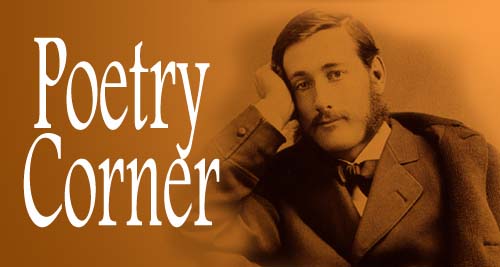
All Poems On Line!
(except "400 Meter Freestyle")
The following poems have been posted along with their worksheets:
POEM #1 "Mushrooms"
POEM #2 "Paul Revere's Ride"
POEM #3 "January"
POEM #4 "Jetliner"
POEM #5 "O Captain! My Captain!"
POEM #6 "The Wreck of the Hesperus"
POEM #7 "The City is so Big"
POEM #8 "Concrete Mixers"
POEM #9 "Southbound on the Freeway"
POEM #10 "William Stafford"
POEM #11 "400 Meter Freestyle" (NOT AVAILABLE)
POEM #12 "All But Blind"
POEM #13 "By Morning"
POEM #14 "Reflections Dental"
POEM #15 "Ellis Island"
POEM #16 "Southern Mansion"
POEM #17 "The Centaur"
POEM #18 "If I can stop one Heart from Breaking"
POEM #19 "The Story-Teller"
POEM #20 "Incident in a Rose Garden"
Guidelines for ALL 5 Original Poems
Now Posted along with the Rubric!
All were due Monday!
Poetry Collection Project Guidelines Available!
Poetry Collections were due
Monday!
Go To Current Unit Info to see it all!
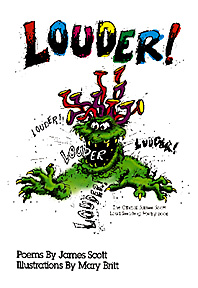
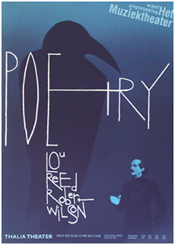




Poetry Final Study Guide Available On Line:

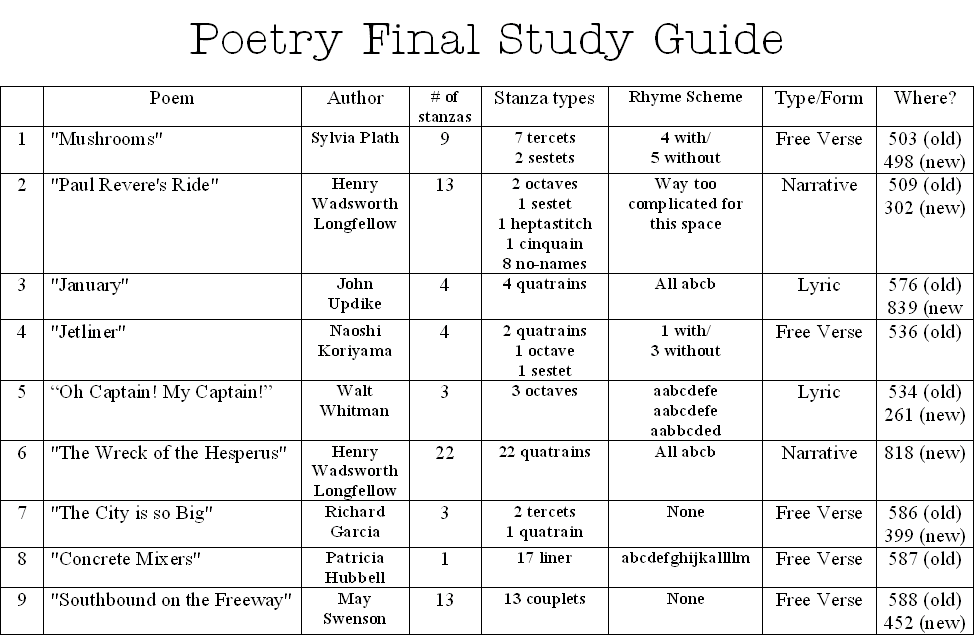
10
|
"William Stafford"
|
Anonymous
|
6
|
6 octaves
|
All abcbdefe except 1 (4)
|
Ballad
|
517 (old)
|
11
|
"400 Meter Freestyle"
|
Maxine Kumin
|
1
|
17 liner
|
None
|
Concrete
|
591 (old)
854 (new)
|
12
|
"All But Blind"
|
Walter de la Mare
|
4
|
4 quatrains
|
All abcb
|
Lyric
|
47 (new)
|
13
|
"By Morning"
|
May Swenson
|
11
|
7 couplets
2 tercets
2 one-liners
|
None
|
Free Verse
|
540 (old)
|
14
|
"Reflections Dental"
|
Phyllis McGinley
|
2
|
1 - 14 liner
1 couplet
|
aabbccddeeffgg
aa
|
Lyric
|
542 (old)
|
15
|
"Ellis Island"
|
Joseph Bruchac
|
3
|
1 quatrain
2 no-names
|
1 with/
2 without
|
Free Verse
|
368 (new)
|
16
|
"Southern Mansion"
|
Arna Bontemps
|
3
|
2 cinquains
1 sestet
|
None
|
Free Verse
|
500 (new)
|
17
|
"The Centaur"
|
May Swenson
|
21
|
20 tercets
1 quatrain
|
2 with/
19 without
|
Narrative
|
824 (new)
|
18
|
"If I can stop one Heart from Breaking"
|
Emily Dickinson
|
2
|
1 quatrain
1 tercet
|
abab
abb
|
Lyric
|
872 (new)
|
19
|
"The Story-Teller"
|
Mark Van Doren
|
4
|
4 quatrains
|
All abab
|
Lyric
|
456 (new)
|
20
|
"Incident in a Rose Garden"
|
Donald Justice
|
9
|
9 tercets
|
2 with (both aab)
7 without
|
Narrative
|
892 (new)
|
You've got to be kidding me! The Study Guide WITH the ANSWERS is posted?
SWEET!
ALL 20 POEMS are posted, along with their worksheets! Keep scrolling down to see them all!
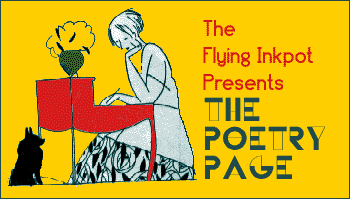
Poem #1
"Mushrooms" by Sylvia Plath
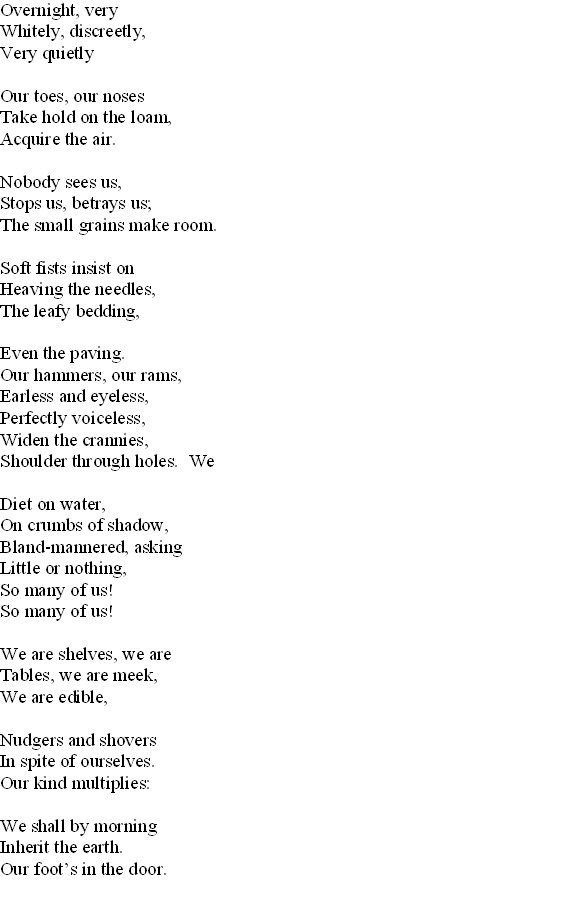
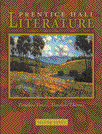





Poem #2
"Paul Revere's Ride"
by Henry Wadsworth Longfellow
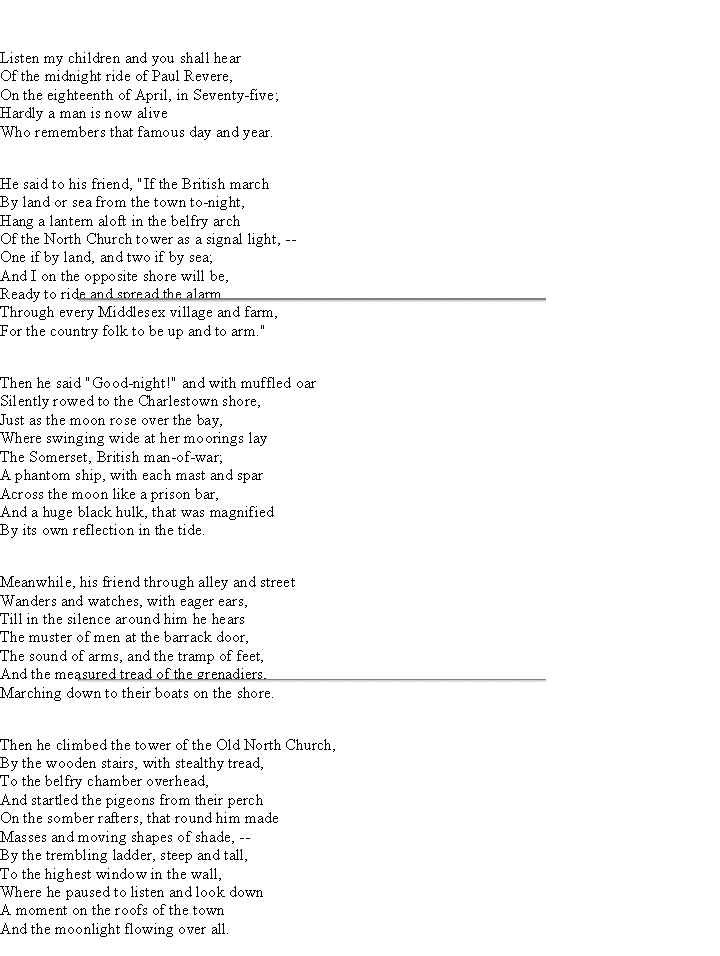
Beneath, in the churchyard, lay the dead,
In their night encampment on the hill,
Wrapped in silence so deep and still
That he could hear, like a sentinel's tread,
The watchful night-wind, as it went
Creeping along from tent to tent,
And seeming to whisper, "All is well!"
A moment only he feels the spell
Of the place and the hour, and the secret dread
Of the lonely belfry and the dead;
For suddenly all his thoughts are bent
On a shadowy something far away,
Where the river widens to meet the bay, --
A line of black that bends and floats
On the rising tide like a bridge of boats.
Meanwhile, impatient to mount and ride,
Booted and spurred, with a heavy stride
On the opposite shore walked Paul Revere.
Now he patted his horse's side,
Now he gazed at the landscape far and near,
Then, impetuous, stamped the earth,
And turned and tightened his saddle girth;
But mostly he watched with eager search
The belfry tower of the Old North Church,
As it rose above the graves on the hill,
Lonely and spectral and somber and still.
And lo! as he looks, on the belfry's height
A glimmer, and then a gleam of light!
He springs to the saddle, the bridle he turns,
But lingers and gazes, till full on his sight
A second lamp in the belfry burns.
A hurry of hoofs in a village street,
A shape in the moonlight, a bulk in the dark,
And beneath, from the pebbles, in passing, a spark
Struck out by a steed flying fearless and fleet;
That was all! And yet, through the gloom and the light,
The fate of a nation was riding that night;
And the spark struck out by that steed, in his flight,
Kindled the land into flame with its heat.
He has left the village and mounted the steep,
And beneath him, tranquil and broad and deep,
Is the Mystic, meeting the ocean tides;
And under the alders that skirt its edge,
Now soft on the sand, now loud on the ledge,
Is heard the tramp of his steed as he rides.
It was twelve by the village clock
When he crossed the bridge into Medford town.
He heard the crowing of the cock,
And the barking of the farmer's dog,
And felt the damp of the river fog,
That rises after the sun goes down.
It was one by the village clock,
When he galloped into Lexington.
He saw the gilded weathercock
Swim in the moonlight as he passed,
And the meeting-house windows, black and bare,
Gaze at him with a spectral glare,
As if they already stood aghast
At the bloody work they would look upon.
It was two by the village clock,
When he came to the bridge in Concord town.
He heard the bleating of the flock,
And the twitter of birds among the trees,
And felt the breath of the morning breeze
Blowing over the meadow brown.
And one was safe and asleep in his bed
Who at the bridge would be first to fall,
Who that day would be lying dead,
Pierced by a British musket ball.
You know the rest. In the books you have read
How the British Regulars fired and fled, -- -
How the farmers gave them ball for ball,
From behind each fence and farmyard wall,
Chasing the redcoats down the lane,
Then crossing the fields to emerge again
Under the trees at the turn of the road,
And only pausing to fire and load.
So through the night rode Paul Revere;
And so through the night went his cry of alarm
To every Middlesex village and farm, -- -
A cry of defiance, and not of fear,
A voice in the darkness, a knock at the door,
And a word that shall echo for evermore!
For, borne on the night-wind of the Past,
Through all our history, to the last,
In the hour of darkness and peril and need,
The people will waken and listen to hear
The hurrying hoof-beats of that steed,
And the midnight message of Paul Revere.






Poem #3
"January" by John Updike
The days are short,
The sun a spark
Hung thin between
The dark and dark.
Fat snowy footsteps
Track the floor.
Milk bottles burst
Outside the door.
The river is
A frozen place
Held still beneath
The trees of lace.
The sky is low.
The wind is gray.
The radiator
Purrs all day.






Poem #4
"Jetliner" by Naoshi Koriyama
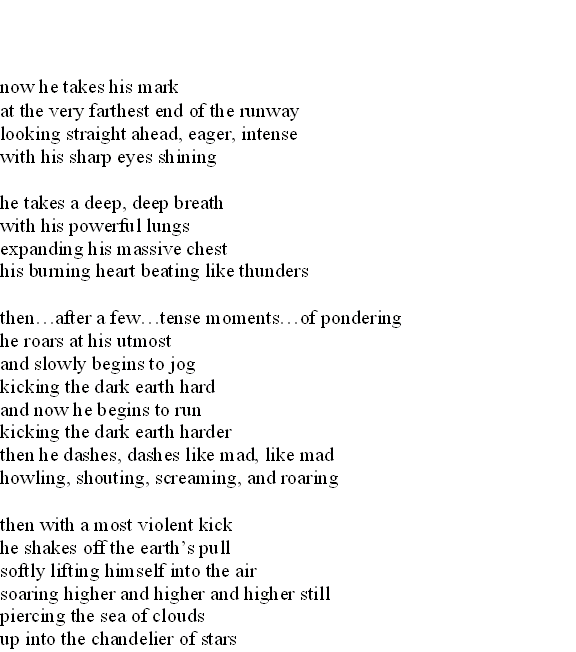






Poem #5
"O Captain! My Captain!"
by Walt Whitman
O Captain! my Captain! our fearful trip is done,
The ship has weather'd every rack, the prize we sought is won,
The port is near, the bells I hear, the people all exulting,
While follow eyes the steady keel, the vessel grim and daring,
But O heart! heart! heart!
O the bleeding drops of red,
Where on the deck my Captain lies,
Fallen cold and dead.
O Captain! my Captain! rise up and hear the bells;
Rise up --for you the flag is flung--for you the bugle trills,
For you bouquets and ribbon'd wreaths--for you the shores a-crowding,
For you they call, the swaying mass, their eager faces turning;
Here Captain! dear father!
This arm beneath your head!
It is some dream that on the deck,
You've fallen cold and dead.
My Captain does not answer, his lips are pale and still,
My father does not feel my arm, he has no pulse nor will,
The ship is anchor'd safe and sound, its voyage closed and done,
From fearful trip the victor ship comes in with object won;
Exult O shores, and ring O bells!
But I with mournful tread,
Walk the deck my Captain lies,
Fallen cold and dead.






Poem #6
"The Wreck of the Hesperus"
by Henry Wadsworth Longfellow
It was the schooner Hesperus,
That sailed the wintry sea;
And the skipper had taken his little daughter,
To bear him company.
Blue were her eyes as the fairy-flax,
Her cheeks like the dawn of day,
And her bosom white as the hawthorn buds
That ope in the month of May.
The skipper he stood beside the helm,
His pipe was in his mouth,
And he watched how the veering flaw did blow
The smoke now West, now South.
Then up and spake an old sailor,
Had sailed to the Spanish Main,
"I pray thee, put into yonder port,
For I fear a hurricane.
"Last night the moon had a golden ring,
And tonight no moon we see!"
The skipper he blew a whiff from his pipe,
And a scornful laugh laughed he.
Colder and colder blew the wind,
A gale from the Northeast,
The snow fell hissing in the brine,
And the billows frothed like yeast.
Down came the storm, and smote amain,
The vessel in its strength;
She shuddered and paused, like a frightened steed,
Then leaped her cable's length.
"Come hither! come hither! my little daughter,
And do not tremble so;
For I can weather the roughest gale,
That ever wind did blow."
He wrapped her warm in his seaman's coat
Against the stinging blast;
He cut a rope from a broken spar,
And bound her to the mast.
"O father! I hear the church-bells ring,
O say, what may it be?"
"Tis a fog-bell on a rock-bound coast!--"
And he steered for the open sea.
"O father! I hear the sound of guns,
O say, what may it be?"
"Some ship in distress, that cannot live
In such an angry sea!"
"O father! I see a gleaming light,
O say, what may it be?"
But the father answered never a word,
A frozen corpse was he.
Lashed to the helm, all stiff and stark,
With his face turned to the skies,
The lantern gleamed through the gleaming snow
On his fixed and glassy eyes.
Then the maiden clasped her hands and prayed
That saved she might be;
And she thought of Christ, who stilled the wave,
On the Lake of Galilee.
And fast through the midnight dark and drear
Through the whistling sleet and snow,
Like a sheeted ghost, the vessel swept
Towards the reef of Norman's Woe.
And ever the fitful gusts between
A sound came from the land;
It was the sound of the trampling surf,
On the rocks and the hard sea-sand.
The breakers were right beneath her bows,
She drifted a dreary wreck,
And a whooping billow swept the crew
Like icicles from her deck.
She struck where the white and fleecy waves
Looked soft as carded wool,
But the cruel rocks, they gored her side
Like the horns of an angry bull.
Her rattling shrouds, all sheathed in ice,
With the masts went by the board;
Like a vessel of glass, she stove and sank,
Ho! ho! the breakers roared!
At daybreak, on the bleak sea-beach,
A fisherman stood aghast,
To see the form of a maiden fair,
Lashed close to a drifting mast.
The salt sea was frozen on her breast,
The salt tears in her eyes;
And he saw her hair, like the brown sea-weed,
On the billows fall and rise.
Such was the wreck of the Hesperus,
In the midnight and the snow!
Christ save us all from a death like this,
On the reef of Norman's Woe!






Poem #7
"The City is so Big" by Richard Garcia
The city is so big
Its bridges quake with fear
I know, I have seen at night
The lights sliding from house to house
And trains pass with windows shining
Like a smile full of teeth
I have seen machines eating houses
And stairways walk all by themselves
And elevator doors opening and closing
And people disappear.






Poem #8
"Concrete Mixers" by Patricia Hubbell
The drivers are washing the concrete mixers;
Like elephant tenders they hose them down.
Tough gray-skinned monsters standing ponderous,
Elephant-bellied and elephant-nosed,
Standing in muck up to their wheel-caps,
Like rows of elephants, tail to trunk.
Their drivers perch on their backs like mahouts,
Sending the sprays of water up.
They rid the trunk-like trough of concrete,
Direct the spray to the bulging sides,
Turn and start the monsters moving.
Concrete mixers
Move like elephants
Bellow like elephants
Spray like elephants
Concrete mixers are urban elephants,
Their trunks are raising a city.






Poem #9
"Southbound on the Freeway" by May Swenson
A tourist came in from Orbitville,
parked in the air, and said:
The creatures of this star
are made of metal and glass.
Through the transparent parts
you can see their guts.
Their feet are round and roll
on diagrams-or long
measuring tapes-dark
with white lines
They have four eyes.
The two in the back are red.
Sometimes you can see a five-eyed
one, with a red eye turning
on the top of his head.
He must be special-
the others respect him,
and go slow,
when he passes, winding
among them from behind.
They all hiss as they glide,
like inches, down the marked
tapes. Those soft shapes,
shadowy inside.
the hard bodies-are they
their guts or their brains?






Poem #10
"William Stafford" by Anonymous
My name is William Stafford,
Was raised in Boston Town;
For nine years as a rover
I roved the wide world `round;
Through all its ups and downs
Some bitter days I saw,
But never knew what misery was
Till I struck Arkansaw.
I started on my journey,
`Twas the merry month of June;
I landed in New Jersey
One sultry afternoon,
Along came a walking skeleton
With long and lantern jaw.
He asked me to his hotel
In the state of Arkansaw.
I followed up a great long rope
Into his boarding place,
Where hunger and starvation
Were printed on his face;
His bread it was corn dodger;
His beef I could not chaw;
He taxed me fifty cents for that
In the state of Arkansaw.
I rose the next morning early
To catch the early train.
He said, "Young man, you'd better stay.
I have some land to drain.
I'll give you fifty cents a day,
Your washing, board, and all;
You'll find yourself a different lad
When you leave Arkansaw."
Six months I worked for this galoot;
Charles Tyler was his name;
He was six feet seven in his boots
And thin as any crane.
His hair hung down like rat tails
Around his lantern jaw;
He was the photograph of all the gents
That's raised in Arkansaw.
He fed me on corn dodgers
As hard as any rock;
My teeth began to loosen;
My knees began to knock.
I got so thin on sassafras,
Could hide behind a straw,
So I sho' was a different lad
When I left Arkansaw.






Poem #11
"400 Meter Freestyle" by Maxine Kumin
Poem Not Available on line due to it's "concreteness"






Poem #12
"All But Blind" by Walter de la Mare
All but blind
In his chambered hole
Gropes for worms
The four clawed mole.
All but blind
In the evening sky
The hooded Bat
Twirls softly by.
All but blind
In the burning day
The Barn Owl blunders
On her way.
And blind as are
These three to me,
So, blind to Some-One
I must be.






Poem #13
"By Morning" by May Swenson
Some for everyone
plenty
and more coming
Fresh dainty airily arriving
everywhere at once
Transparent at first
each faint slice
slow soundlessly tumbling
then quickly thickly a gracious fleece
will spread like youth like wheat
over the city
Each building will be a hill
all sharps made round
dark worn noisy narrows made still
wide flat clean spaces
Streets will be fields
cars be fumbling sheep
A deep bright harvest will be seeded
in a night
By morning we'll be children
feeding on manna
a new loaf on every doorsill






Poem #14
"Reflections Dental" by Phyllis McGinley
How pure, how beautiful, how fine
Do teeth on television shine!
No flutist flutes, no dancer twirls,
But comes equipped with matching pearls.
Gleeful announcers all are born
With sets like rows of hybrid corn.
Clowns, critics, clergy commentators,
Ventriloquists and roller skaters,
M.C.s who beat their palms together,
The girl who diagrams the weather,
The crooner crooning for his supper-
All flash white treasures, lower and upper.
With miles of smiles the airwaves teem,
And each an orthodontist's dream.
`Twould please my eye as gold a miser's-
One charmer with uncapped incisors.






Poem #15
"Ellis Island" by Joseph Bruchac
Beyond the red brick of Ellis Island
where the two Slovak children
who became my grandparents
waited the long days of quarantine,
after leaving the sickness,
the old Empires of Europe,
a Circle Line ship slips easily
on its way to the island
of the tall woman, green
as dreams of forests and meadows
waiting for those who'd worked
a thousand years
yet never owned their own.
Like millions of others,
I too come to this island,
nine decades the answerer
of dreams.
Yet only one part of my blood
loves that memory.
Another voice speaks
of native lands
within this nation.
Lands invaded
when the earth became owned.
Lands of those who followed
the changing Moon,
knowledge of the seasons
in their veins.






Poem #16
"Southern Mansion" by Arna Bontemps
Poplars are standing there still as death
And ghosts of dead men
Meet their ladies walking
Two by two beneath the shade
And standing on the marble steps.
There is a sound of music echoing
Through the open door
And in the field there is
Another sound tinkling in the cotton:
Chains of bondmen dragging on the ground.
The years go back with an iron clank,
A hand is on the gate,
A dry leaf trembles on the wall.
Ghosts are walking.
They have broken roses down
And poplars stand there still as death.






Poem #17
"The Centaur" by May Swenson
The summer that I was ten--
Can it be there was only one
summer that I was ten? It must
have been a long one then--
each day I'd go out to choose
a fresh horse from my stable
which was a willow grove
down by the old canal.
I'd go on my two bare feet.
But when, with my brother's jack-knife,
I had cut me a long limber horse
with a good thick knob for a head.
And peeled him slick and clean
except a few leaves for the tail,
and cinched my brother's belt
around his head for a rein,
I'd straddle and canter him fast
up the grass bank to the path.
trot along in the lovely dust
that talcumed over his hoofs,
hiding my toes, and turning
his feet to swift half-moons.
The willow knob with the strap
jouncing between my thighs
was the pommel and yet the poll
of my nickering pony's head.
My head and my neck were mine.
yet they were shaped like a horse.
My hair flopped to the side
like the mane of a horse in the wind.
My forelock swung in my eyes.
my neck arched and I snorted.
I shied and skittered and reared,
stopped and raised my knees,
pawed at the ground and quivered.
My teeth bared as we wheeled
and swished through the dust again.
I was the horse and the rider,
and the leather I slapped to his rump
spanked my own behind.
Doubled, my two hoofs beat--
a gallop along the bank.
the wind twanged in my mane,
my mouth squared to the bit.
And yet I sat on my steed
quiet, negligent riding,
my toes standing the stirrups,
my thighs hugging his ribs.
At a walk we drew up to the porch.
I tethered him to a paling.
Dismounting, I smoothed my skirt
and entered the dusky hall.
My feet on the clean linoleum
left ghostly toes in the hall.
Where have you been? said my mother.
Been riding, I said from the sink,
and filled me a glass of water.
What's that in your pocket? she said.
Just my knife. It weighed my pocket
and stretched my dress awry.
Go tie back your hair, said my mother,
and Why is your mouth all green?
Rob Roy, he pulled some clover
as we crossed the field, I told her.






Poem #18
"If I can stop one Heart from Breaking" by Emily Dickinson
If I can stop one Heart from breaking,
I shall not live in vain;
If I can ease one Life the Aching,
Or cool one Pain,
Or help one fainting Robin
Unto his Nest again,
I shall not live in Vain.






Poem #19
"The Story-Teller"
by Mark Van Doren
He talked, and as he talked
Wallpaper came alive;
Suddenly ghosts walked,
And four doors became five;
Calendars ran backward,
And maps had mouths;
Ships went tackward
In a great drowse;
Trains climbed trees,
And soon dripped down
Like honey of bees
On the cold brick town.
He had wakened a worm
In the world's brain,
And nothing stood firm
Until day again.






Poem #20
"Incident in a Rose Garden" by Donald Justice
Gardener: Sir, I encountered Death
Just now among our roses.
Thin as a scythe he stood there.
I knew him by his pictures.
He had his black coat on,
Black gloves, a broad black hat.
I think he would have spoken.
Seeing his mouth stood open.
Big it was, with white teeth.
As soon as he beckoned, I ran.
I ran until I found you.
Sir, I am quitting my job.
I want to see my sons
Once more before I die.
I want to see California.
Master: Sir, you must be that stranger
Who threatened my gardener.
This is my property, sir.
I welcome only friends here.
Death: Sir, I knew your father.
And we were friends at the end.
As for your gardener,
I did not threaten him.
Old men mistake my gestures.
I only meant to ask him
To show me to his master.
I take it you are he?
Hey, the Worksheets Are Here Too!
[But NOT the Graphic Organizer]
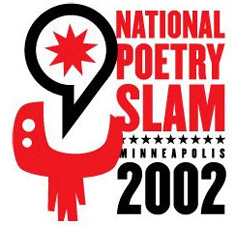
Original Poem Guidelines
Poems 1-5
All Due TOMORROW!
Original Poem Rubric is Here!
Poetry Project
Collection of Poems With Reactions
This poetry project is due Friday, December 3rd
This should be an easy one. A piece of cake, a drop in the bucket, like shooting fish in a barrel (I got a little carried away with idioms there!)
What you need to do is locate 10 poems you like. You can find these poems anywhere poems can be found.
Our Prentice Hall Literature books (new or old)
Poetry books found in the school, or any other library
Poems found in magazines
Any poetry books you may have at home are fine
Poems found on the Internet
Poems you, or someone you know, has written
It doesn't matter where you find the poems. What matters is what you do with them! First of all you need to photocopy, rewrite or otherwise reproduce each of your poems so I can read them.
Then you need to explain why you chose each poem. Why do you like it? What images or pictures does it create for you? Why does it connect with you? What does it mean to you?
Be intelligent with your responses! “It was funny” isn't what I'm looking for. You're in eighth grade! Express yourself!
Since you can photocopy poems, don't be lazy and choose 10 really short ones. It's been done and it's been given a very low grade.
Each response needs to be at least 5 sentences in length. If you can't write 5 sentences about why you like it, you probably don't like it that much!
And one more thing….NO SHEL SILVERSTEIN!!!
Poetry Links!
Poetry Kids Page
Concrete Poetry Page
Cinquains!
People reading their favorite poems:
Glossary of Poetic Terms
More Poetry Links Worth a Look:
Poetry Unit Learning Objectives
1. Understand the difference between prose and poetry and be able to identify examples of each.
2. Be able to identify and label a stanza based on the amount of lines it contains.
3. Appreciate the use of imagery and rhythm & rhyme in poetry and be able to explain why the poet used the words they chose to create vivid images or pictures in the reader's mind.
4. Understand the six “How to Read a Poem” steps and apply these steps to the reading and appreciation of the poems read during this unit.
5. Be able to define the seven types of figurative language we will study during this unit. Students should also be able to locate these literary devices (simile, metaphor, assonance, alliteration, onomatopoeia, hyperbole, personification) in the poems we read during this unit.
6. Become familiar with the types of poetry that will be read during this unit (free verse, narrative, concrete, lyric, ballad) and be able to identify the type of a poem by reading it.
7. Understand what rhyme scheme is and how if affects a poem. Students should be able to identify a poem's rhyme scheme by reading the lines.
8. Create a collection of Original Poetry including examples of Acrostic, “What's Bugging Me?, Haiku, Concrete, and 5 Sense Poems. This collection will be handed in as one of the two major projects for this Poetry Unit.
9. Create a Poetry Collection consisting of 10 age appropriate poems. Each poem will be reproduced so Mr. Dahlin can read them. Accompanying each poem will be a response of five sentences or more detailing personal thoughts and feelings about each poem. This is the second of the two major projects for this Poetry Unit.

Exploring the Genre
In poetry, language is used in special ways to create vivid, memorable, and sometimes musical impressions. Poems may capture a single moment in time, take you into a world of make-believe, or tell the story of a person's life.
Poetry Terms You Need to Know
Narrative poetry tells a story. A ballad is one type of narrative poem. Ballads are songlike poems.
Lyric poetry expresses personal thoughts and feelings.
Poetic form is the structure of a poem - its pattern of lines, stanzas, and rhyme. A haiku, a sonnet, and a concrete poem have different poetic forms.
Poetic purpose is the intention of a poem. An ode, an elegy, and an epic are written to achieve different poetic purposes.
Sound devices are elements such as rhyme, rhythm, alliteration, assonance, and onomatopoeia that give poetry a musical quality.
Imagery is descriptive detail that appeals to the senses.
Figurative language uses simile, metaphor, or personification to say things in ways that are not meant to be taken literally.
Poetry
"What you need to know before we start"
Short stories, essays, autobiographies, newspapers, magazines, and textbooks - are all examples of prose (the language of everyday life, the ordinary form of written language…comes in fiction and non-fiction)
Poetry, unlike prose, consists of language with a strong musical quality in which the words are highly charged with meaning.
Prose is written in sentences that are grouped into paragraphs.
Poetry is written in lines that are grouped into stanzas.
Poetry is one of the oldest forms of literature. Before literature was written down, people told stories. They used rhythm and rhyme to help them remember the stories better. Ballads were actually stories in poetic forms that were sung. Many narrative poems still use rhythm and rhyme to tell stories.
In addition to using rhythm and rhyme, poets use language in other special ways to appeal to a reader's senses and emotions. Because many poems are short, poets choose each word and phrase with care to create vivid images, or pictures, in the reader's mind.
"How to Read a Poem"
Reading poetry demands getting actively involved. Use the following strategies to help you read a poem actively and discover the poem's full meaning.
Question - Poetry makes us look at the world with new eyes. As you read, ask questions about the meanings of the words and the effect of the language. Stop to think about the vivid images, or word pictures. What do they make you see or feel?
Clarify - The words in poetry are often easy to read, but getting the sense of the words is more difficult. Stop to clarify, or clear up, any questions you may have. If the words to not make sense to you, perhaps the poet is using them figuratively and intends to play with your imagination.
Listen - Listen to the musical quality created by the rhythm and rhyme. What is created by the use of repetition and alliteration?
Summarize - If a poem tells a story (narrative poem) stop at appropriate points to summarize what has happened so far.
Paraphrase - Put the poems in your own words. By doing so, you will make its meaning your own.
Pull it Together - Ralph Waldo Emerson once wrote: "A poem is made up of thoughts, each of which filled the whole sky of the poet in its turn." After you read a poem, bring all these thoughts together. What did the poem say to you?
Figurative Language
Figurative language is writing of speech that is not meant to be taken literally. The many types of figurative language are called figures of speech. Writers use figurative language to express their meanings in fresh, vivid, surprising ways.
Simile - A figure of speech that makes a direct comparison between two unlike objects, using the words like or as. Writers use similes to create vivid, telling descriptions. Poetry relies on similes to point out new and interesting ways of looking at the world.
"And trains pass with windows shining
Like a smile full of teeth."
"Sly as a fox" "Quiet as a mouse" "Dumb as a box of rocks"
Metaphor - A figure of speech in which something is described as though it were something else. A metaphor, like a simile, works by pointing out a similarity between two things.
"The road was a ribbon of moonlight"
An extended metaphor is one that makes more than one point of comparison.
Assonance - The repetition of vowel sounds in a series of words.
"Amy always asks for answers" "Early every evening"
Alliteration - The repetition of initial consonant sounds in a series of words. In poetry, alliteration is used to create a musical or rhythmic effect, to emphasize key words, or to imitate sounds.
"Lonely and spectral and somber and still" "Milk bottles burst"
Onomatopoeia - The use of words that imitate sounds.
"Hiss" "Gurgle" "Buzz" "Jingle" "Wham"
Hyperbole - Exaggeration for effect. Writers use hyperbole to create humor, to emphasize particular points, and to create dramatic effects.
"Along came a walking skeleton" "He could hide behind a straw"
Personification - A type of figurative language in which a non-human subject is given human characteristics.
"And felt the breath of the morning breeze"
Stanzas
A stanza is a group of lines in a poem, considered as a unit. Many poems are divided into stanzas of equal length, with the stanzas separated by spaces. Stanzas are often like paragraphs in prose: Each presents a single thought or idea. Stanzas are usually named according to the number of lines they contain, as follows:
A) Couplet : a two-line stanza
B) Tercet : a three-line stanza
C) Quatrain : a four-line stanza
D) Cinquain : a five-line stanza
E) Sestet : a six-line stanza
F) Heptastitch : a seven-line stanza
G) Octave : an eight-line stanza
In traditional poetry stanzas are often rhymed. However, not all rhyming poems use stanzas, nor do all poems that are divided into stanzas rhyme. Less traditional poetry contains stanzas of varying length, sometimes with, sometimes without, rhyme.
Rhyme Scheme
Rhyme Scheme is a regular pattern of rhyming words in a poem.
To indicate the rhyme scheme of a poem, use lowercase letters.
Each rhyme is assigned a different letter, as follows in the first stanza of “Dust of Snow” by Robert Frost:
The way a crow a
Shook down on me b
The dust of snow a
From a hemlock tree b
Thus, the stanza has a the rhyme scheme abab
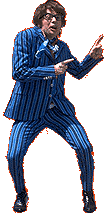

19th Century American Authors
"In the four quarters of the globe, who reads an American book? Or goes to an American play? Or looks at an American picture or statue? Literature the Americans have none - no native literature, we mean. It is all imported."
Sydney Smith - British critic summing up
American culture in 1820
This statement was pretty close to the truth in 1820. Many American writers and artists copied European themes, characters, and settings. Americans complained that the short history of the US failed to provide adequate material for stories, novels, and paintings. After 1820 this began to change and Americans started writing stories with American themes.
Early Writers of American Literature
Washington Irving - published a collection of tales in 1820 titled the Sketch Book. Irving's stories opened readers' eyes to the richness of American folklore.
This collection included "Rip Van Winkle" and "The Legend of Sleepy Hollow". "The Legend of Sleepy Hollow" took place in New York's Hudson River Valley and had American characters. Rip Van Winkle was a colonial farmer who fell asleep for 20 years and missed the American Revolution. Ichabod Crane arrived in Sleepy Hollow but soon fled under mysterious circumstances.
James Fenimore Cooper - In 1823, Cooper created Natty Bumpo - the first great American fictional hero. Bumpo was a tough pioneer in deerskin leggings. He appeared in several Cooper novels including, The Pioneers, The Deerslayer, and The Last of the Mohicans. These novels had nothing to do with the sophisticated world of Europe. Instead, they paid tribute to the beauty and danger of the American frontier.
William Cullen Bryant - a poet and editor who carried on a personal crusade for American literature. He traveled the country urging American authors to abandon Europe and celebrate America
Later American Writers
Nathaniel Hawthorne - descended from Puritans who had settled Salem, Massachusetts 200 years before his birth. He was fascinated with the Puritan traditions and they were a focus for his fiction. His most famous novels, The Scarlet Letter and The House of the Seven Gables, explored Puritan views of guilt and innocence, and good and evil.
Herman Melville - a friend of Hawthorne's, he also used the voices of distinctly American characters - New England whalers. His masterpiece, Moby Dick, tells the tale of the hunt for a white whale and examines Americans' materialism and idealism. It was harshly criticized at the time and readers ignored it. Today, though, many consider it one of the greatest American novels.
William Wells Brown - wrote the first published fiction by an African American. The novel, Clotel, came out in 1853 and described the life of American's enslaved people.
Edgar Allan Poe - may have been the most eccentric American author of the 1800s. Poe abused drugs and worried constantly about money. His poetry, essays, and short stories seemed to reflect his troubled life. They reeked of death, evil, and horror. Yet Americans became fascinated with his work. Some of his classics - "The Raven", "The Black Cat", and "The Tell-Tale Heart".
Women Writers
Margaret Fuller - her Woman in the Nineteenth Century had great influence on the movement for women's rights.
Catharine Sedgwick & Fanny Fern wrote serials for newspapers and magazines. Their fiction became known as "the domestic novel".
Women wrote many of the best-selling novels and earned far more money than male authors of the time.
Poets
Henry Wadsworth Longfellow - his poems were easy to understand and full of optimism. They revived American legends for generations of children. By writing about the American past, Longfellow created a sense of identity for Americans. His most famous poems are "Paul Revere's Ride" and "The Song of Hiawatha".
John Greenleaf Whittier - from New Hampshire, his poems explored the dark side of American culture. He cried out against slavery in many of his poems.
Walt Whitman - a New Yorker who attempted to speak for all Americans. His verses glorified women, sailors, pioneers, city dwellers, and even Presidents ("O Captain! My Captain!") His most famous collection of poems was titled Leaves of Grass.
Emily Dickinson - from New England, she seemed as eccentric as Poe. She was always dressed in white and lived in seclusion. She composed many poems about loneliness, love and death but published only seven during her lifetime.
Great Influences
Ralph Waldo Emerson - many people consider this Bostonian the conscience of 19th Century America. He urged Americans to discard corrupt European thinking. He scorned materialism and valued individualism and harmony between human beings and nature. Emerson is famous for his poetry and essays.
Henry David Thoreau - regarded Emerson as his spiritual father. He moved to a small cabin at Walden Pond in northeast Massachusetts. There he spent two years thinking and writing about nature. He often voiced dissent in a world that worshipped material progress and expansion. To protest slavery and the Mexican War, he refused to pay a poll tax (a sum of money paid in exchange for the right to vote) and spent time in jail. His famous essay "Civil Disobedience" encouraged others to disobey unjust laws. His best known work, Walden, popularized his ideas about living a simple life.
American Painters
John Singleton Copley, Benjamin West, Gilbert Stuart were all early American painters. They studied abroad and learned a formal style of painting. Their pictures portrayed neatly cultivated fields and countrysides and great men and women of society.
Later American artists, inspired by Jacksonian democracy and thinkers such as Emerson, developed a different style. Their paintings showed America's vast wilderness and the variety of its people.
Thomas Cole - came to the US from England in 1819. Painter of American landscapes. He and Asher Durand were part of the Hudson River School. These artists painted landscapes of the Hudson River and Catskill Mountains in New York.
George Caleb Bingham & William Sidney Mount - "Genre artists" who depicted everyday subjects. Mount was one of the first American artists to paint African American people.
George Catlin - set out to paint every group of Native Americans in North America. By the end of the decade, he had more than 40 groups represented on canvas.
Glossary Terms to Remember
idiom - a phrase or expression having a special meaning that cannot be understood from the individual meanings of its words. (i.e. - "to fly off the handle")
standard - of or relating to a kind of language that is most widely accepted by educated speakers.
dialect - a variety of language spoken in a particular region by a particular group.
lexicon - a stock of terms used in a particular subject or profession. A vocabulary.
jargon - 1) nonsensical or meaningless talk, gibberish
2) the specialized language of a trade, profession or class
folklore - records customs, traditions, and beliefs of a people and also consists of arts & crafts, dances, games, riddles, fairy tales, nursery rhymes, proverbs, songs and superstitions.
myths - often explain early ideas about nature, feature gods, goddesses and supernatural beings.
legends - a widely told story about the past that may or may not have a foundation in fact. Usually contain fantastic details such as feats of incredible strength.
folktales - present customs and beliefs of a culture and often teach a lesson.
alliteration - the repetition of initial consonant sounds, used to create a musical or rhythmic effect in poetry.
allusion - a reference to a well-known person, place, event, literary work, or work of art. Writers usually don't explain their allusions, they expect the reader to be familiar with what they're writing about.
anecdote - a brief story about an interesting, amusing, or strange event. Used to entertain and make specific points.
antagonist - a character or force in conflict with the main character.
autobiography - a form of nonfiction in which a person tells his or her own life story.
ballad - a songlike poem that tells a story.
biography - a form of nonfiction in which a writer tells the life story of another person.
characterizaion - the act of creating and developing a character.
concrete poem - a poem with a shape that suggests its subject.
conflict - a struggle between opposing forces.
dialogue - conversation between two characters.
drama - a story written to be performed by actors.
essay - a short, nonfiction work about a particular subject. An expository essay presents information, discusses ideas, or explains a process.
exposition - writing or speech that explains or informs.
fable - a brief story usually with animal characters that teaches a lesson or moral.
fantasy - highly imaginative writing that contains elements not found in real life.
fiction - prose writing that tells about imaginary characters and events.
figurative language - writing or speech that is not meant to be taken literally.
flashback - a section of a literary work that interrupts the sequence of events to relate an event from an earlier time.
foreshadowing - the use of clues that suggest events that have yet to occur.
free verse - poetry not written in a regular rhythmical pattern.
genre - a division or type of literature. Literature is generally divided into three major genres: poetry, prose, and drama. Each of these major genres can be broken down into other categories.
hero/heroine - a character whose actions are inspiring or noble.
hyperbole - obvious and intentional exaggeration, not to be taken seriously.
image - a word or phrase that appeals to one or more of the five senses.
irony - literary techniques that involve surprising, interesting or amusing contradictions.
verbal irony - words are used to suggest the opposite of their usual meaning
dramatic irony - a contradiction between what a character thinks and what the audience or reader knows to be true.
irony of situation - an event occurs that directly contradicts the expectations of the characters or the reader.
lyric poem - a highly musical verse that expresses the observations and feelings of a single speaker.
metaphor - a figure of speech in which something is described as though it were something else.
mood - or atmosphere, is the feeling created in the reader by a literary work or passage.
moral - a lesson taught by a literary work.
motivation - a reason that explains or partially explains a character's thoughts.
narrative poem - a story told in verse (a poem that tells a story)
narrator - a speaker or character who tells a story.
nonfiction - prose writing that presents and explains ideas or that tells about real people, places, objects or events.
novel - a long work of fiction.
onomatopoeia - the use of words that imitate sounds.
personification - a type of figurative language in which a nonhuman subject is given human characteristics.
persuasion - writing or speech that attempts to convince the reader to adopt an opinion or course of action.
plot - the sequence of events in a literary work.
point of view - the perspective or vantage point from which a story is told. We went over the four types many many times this year.
prose - the ordinary form of written language. Most writing that is not poetry, drama or song is considered prose.
protagonist - the main character in a literary work
science fiction - writing that tells about imaginary events that involve science or technology.
setting - the time and place of the action in a literary work.
short story - a brief work of fiction.
simile - a figure of speech that makes a direct comparison between two unlike subjects, using like or as.
stanza - a group of lines in a poem.
symbol - anything that stands for or represents something else. Usually concrete objects or images that represent abstract ideas.
theme - a central message, concern, or insight into life expressed in a literary work. A theme can usually be expressed by a one- or two-sentence statement about human beings or about life.
tone - the attitude toward the subject and audience conveyed by the language and rhythm of the speaker in a literary work.
World War II Links
Just a few to start - I'll be adding more as we go along.
Poetry Vs. Prose
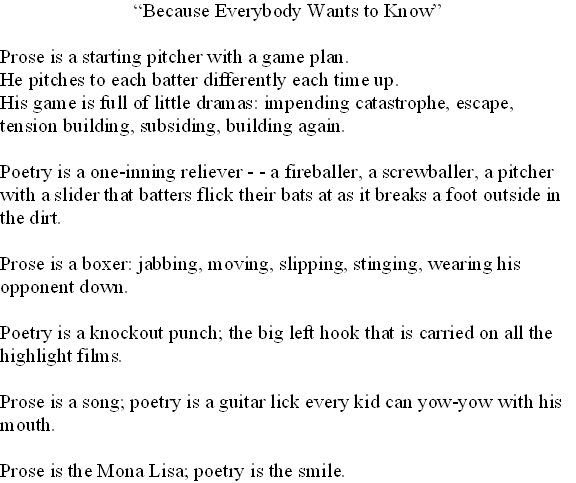
"What's Bugging Me"
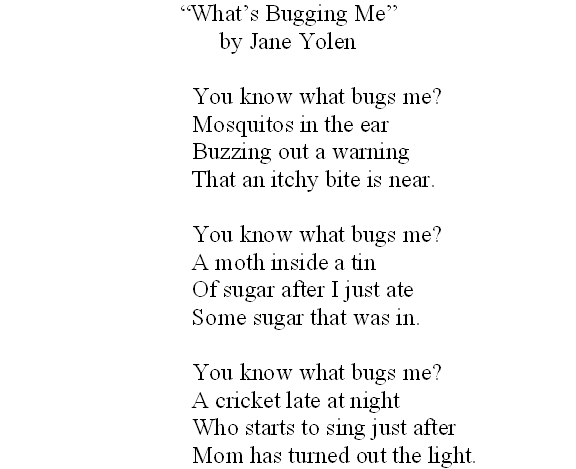
Revolutionary War Links!
Information on the 13 Colonies and American Revolution battle sites!
A site devoted to the American Revolution. Info, links, and more.
Causes of the American Revolution at your fingertips.
Little known facts about the Revolutionary War. Amaze your friends, or better yet, Mr. Mullings!!
A timeline of the entire Colonial Period.
Links to several other web sites about the American Revolution.
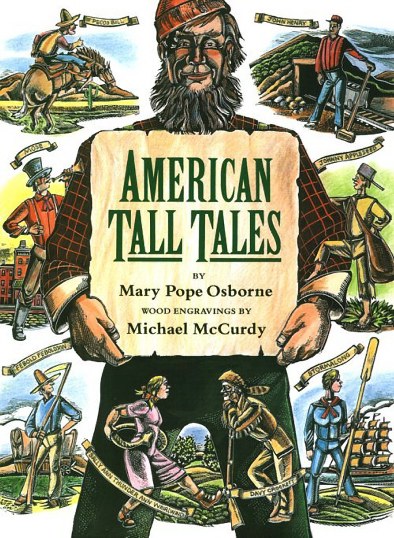
The Last Day to Hand in Any Folktales Work is Tomorrow!
Folktales Info. Still Available!
Go to Current Unit Info
and get to work!
